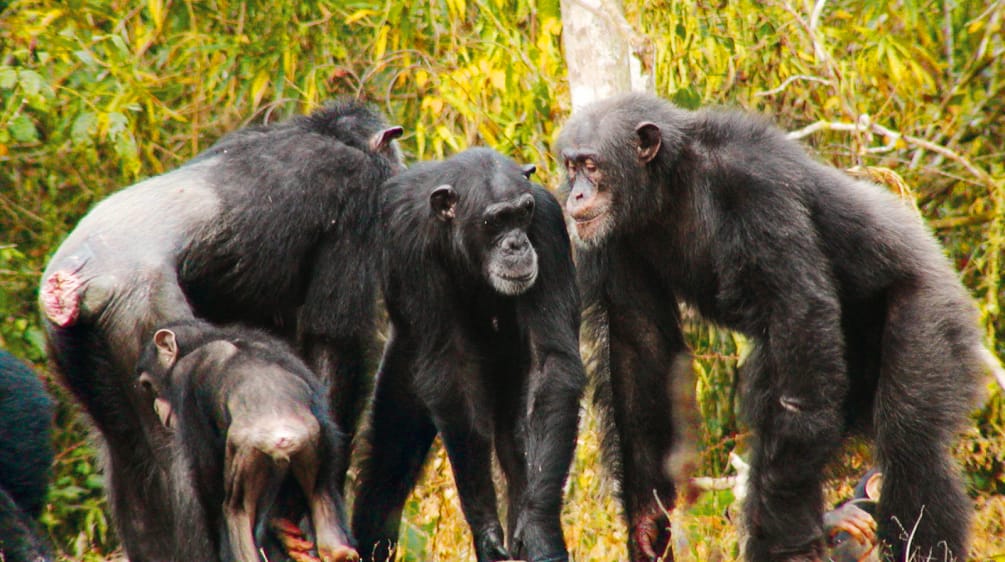Situation of western chimpanzees deteriorating dramatically
 Rigorous protective measures will be needed to save western chimpanzees from extinction. (© Sonja Metzger/ WCF)
Rigorous protective measures will be needed to save western chimpanzees from extinction. (© Sonja Metzger/ WCF)
Jul 19, 2020
An action plan to protect western chimpanzees has just been published by the International Union for Conservation of Nature (IUCN). The gist of its findings: our West African cousins are on a trajectory toward extinction unless drastic measures are taken immediately.
Why is the population of western chimpanzees plummeting, and what can we do about it? Habitat loss and poaching are the most obvious problems – and researchers have now confirmed this with current data from the eight countries in which the primates live. To this end, they have presented a Regional Action Plan for the Conservation of Western Chimpanzees (Pan troglodytes verus) 2020–2030. The previous plan was released in 2003.
The numbers are clear and alarming: Between 1990 and 2014, the western chimpanzee population plummeted by no less than 80 percent to only 52,800 individuals. Most of them live in Guinea, Liberia and Sierra Leone – and only 17 percent of the total population live in protected areas.
Agriculture, logging, mining and infrastructure projects such as roads and dams are the main drivers of habitat loss. The outlook is poor, as deforestation is predicted to continue: minus 20 percent by 2030, minus 60 percent by 2050. At present, 40 percent of chimpanzees live less than five kilometers from human settlements – and the danger will increase as humans continue to encroach on them.
Diseases – including contagious ones that the animals can contract from humans – are also contributing to the population slump. Researchers, rangers and tourists therefore wear protective masks when visiting the primates. While COVID-19 has not yet been documented among chimpanzees, the danger is real.
The experts list nine strategies for action, including closing gaps in our knowledge about the exact distribution and population trends of chimpanzees, and establishing, strengthening and maintaining protected areas. Raising awareness of the dire situation of chimpanzees among local people, companies, authorities and governments is also key, as is highlighting the importance of maintaining the cultural and genetic diversity of one of our closest cousins in the animal kingdom.
These strategies are being pursued by the Wild Chimpanzee Foundation (WCF), a long-time partner of Rainforest Rescue. WCF primatologists were involved in drawing up the action plan.
Many of the actions advocated by the plan are also effective in conserving overall biodiversity, a further benefit that addresses one of the great challenges of our time.
For more information, the Regional Action Plan for the Conservation of Western Chimpanzees (Pan troglodytes verus) 2020–2030 is available here.











